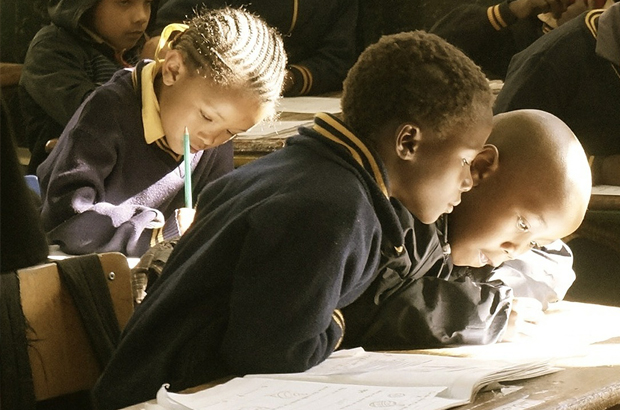Under Sixteen & Teen Guide

Below are information about teenage domestic abuse preparedness.
It is wishful thinking to believe that your children are not affected by any form of verbal or physical abuse you are being subjected to. Children are smarter and able to discern that where there is hostility and unpleasantness love does not exist. Especially when there is a lot of shouting, physical fighting, screaming and chaos. The psychological trauma is enormous and the long term impact difficult to measure.
Intervention Steps:
So if you are in an abusive and often violent relationship where your children are exposed to it and are in danger or their safety is being compromised, you need to take action today. Your children deserve to live in a peaceful, safe and happy environment. So get help today!
GUIDELINE FOR THE CHILD:
Here are steps you can take as a child in a domestic abuse situation:
- If you are child under or over sixteen living in a home where your mother is being beaten or abused, you can call the police to get help for your mother and yourself.
- If you are being beaten or abused also, you can call the police to get help.
You can: Call the Police by dialing 999 or call the national helpline on 0 800 027 1234 - You can call your GP or nurse when you visit or call the surgery.
- Talk to your teacher in confidence.
- Talk to your social worker or health visitor in confidence.
- Talk to your pastor or minister in church.
- You can talk to someone you trust who can do something about it.
How to prepare your daughter:
One of the greatest errors with raising daughters in these times is the failure of parents to teach their daughters about domestic violence and partner abuse. Many parents are under the naïve illusion that it will not happen to their child. Mothers who have the experience often talk to their children about it but preparing them to deal with it or avoid it in future is another matter. Some parents simply do not have enough information/knowledge about how to address the situation. Failure to prepare is a preparation for failure.
GUIDELINE FOR PREPARING DAUGHTERS:
- There are vital steps a parent should take in order to teach your daughter to be a strong, alert, competent & independent person.Teach her to:
- To pray about everything & every situation in life-very vital!
- Get good at tackling life challenges.
- Get good at problem solving independently.
- Learn to place her emotions under check.
- Affirm herself in what God said and thinks of them as regards their value, honour and being loved unconditionally by God. [See Isaiah 43v4]
- Inspire your daughter to believe in herself and her abilities and in what she can accomplish with or without the help of others.
- Be sure you to let your daughter know that she is LOVED by you unconditionally.
- Teach your daughter not to compromise her dignity or sexuality under any circumstance.
- Let her know she is not for sale nor does she need to cave in under pressure to her boyfriend or lover in order to feel loved.
- Teach your daughter to say 'No!' to unwanted offers, affection or pressure and to stand her ground no matter what.
- Let her know LOVE DOES NOT HURT! Love is not designed to be a painful experience and love does not blackmail others to submission.
- Teach your daughter to be nice to people but stand her ground when she is certain the demand of others is wrong or unreasonable.
- Teach her to set good standards for herself, to watch her character and conviction and not be prepared to do what others do just to please people.
- Teach your child to PRAY & SEEK GOD before getting into any relationship.
- Sit down and have a straight talk about understanding what dating/sex can lead to. Be sure to educate her on what genuine love is versus infatuation and how not to lean on her emotional feelings in starting or staying in a relationship
- Help her set standards for the kinds of friends she intends to hang around with.
- Teach her that sex can wait and DO NOT FAIL to discuss the consequences of getting pregnant at the wrong age & time in life without adequate preparation.
- Be sure you have covered SEX very well, way before dating begins. After dating & courting starts, you may have lost the advantage.
- Let her see, know and learn from you what a good moral compass should be.
- If you are the type who have made mistakes in your past, be sure to use that experience to let your daughter know she can choose different.
- Teach & show her how to carry out a partner potential evaluation and how to discern. Let her see, read and listen to accounts of those who made wrong choices and those who made good choices.
- Do not apply undue pressure but leave no reality stone unturned about the dangers of acting in ignorance.
It is often said that Knowledge is power, so we encourage parents to teach your daughters to watch out for the warning signs of domestic violence/abuse:
[a] Controlling behavior:
Domestic violence doesn’t usually start with physical violence. Typically, the abuser will begin to find ways to manipulate or control a victim: isolating her from her friends and family, controlling what she wears, stipulating where she goes and who she talks to. This is a major red flag that indicates the potential for domestic violence.
[b] Emotional abuse:
Physical violence is often just around the corner when a partner begins degrading a person, calling her names, treating her disrespectfully, and harshly criticizing her.
[c]Violent temper display:
Someone who easily flies off the handle and uses violence to deal with his problems can easily choose to display that same violence in a relationship. This especially applies if he is already demonstrating violence and disrespect towards his family and friends.
[d] The cycle of violence:
There is the cycle of violence that regularly appears in abusive relationships.
It begins with “the escalating phase” (typified by anger, arguing, blaming, controlling); then moves to “the violent phase” (where the victim is physically attacked); then to “the making-up phase” (where the abuser cries, begs for forgiveness, vows to change, etc); then it starts all over once the victim takes the abuser back.
[e] Understanding danger signs:
Help your daughter understand the danger in allowing herself to be treated badly the first time, so she won’t become trapped in the cycle of violence.
Open Door Policy:
- Let your child know you are available and ready to talk at anytime she has a problem.
- Earn her trust and maintain the trust threshold at an even keel.
- Overbearing parenting pattern may cause you to lose your children's trust & confidence.
- To help your children you need to know what is going on in their lives and they need to feel secured and free enough to trust you. This is very important!








